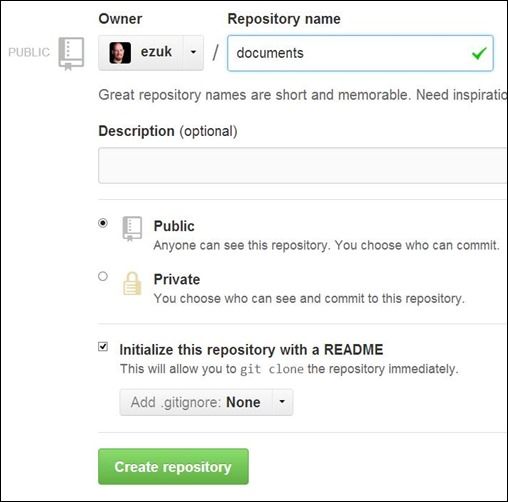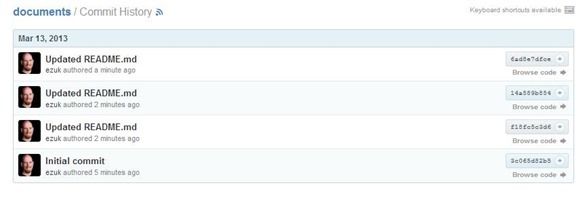Traditionally, writing is a solitary affair. It's just you and the screen, or a piece of paper. Man versus text in a battle of wills, wits, and emotion, until suddenly – you're done. Now it's time to show the world, to put your text out there and watch what happens. But in these digital times, that's not the only way to go about writing.
What if it was all out in the open, all along? What if the world could see your revisions and follow along, making suggestions? On the face of it, this may seem like a horrible idea – but for some kinds of texts (and for certain writers), such open collaboration may be a boon. Prose is a simple online publishing platform that interfaces with GitHub to let you edit text online and keep revisions using Git.
Getting Started
To work with Prose, you must first have a GitHub account. Assuming you're logged into Git, simply click the Prose's Authorize button:
Git will then ask if you're sure you want to authorize Prose. Prose requires quite a few permissions, but they all make sense:
Next, you'll find yourself back in Prose, looking at a list of all of your Git repositories:
If you're like me, none of your existing repositories are a good fit for a bunch of text. Of course, this may not be true for you: For example, if you are using the Jekyll publishing framework, you may already have a repository just waiting for text. In fact, much of Prose seems to be built with Jekyll users in mind: Prose even lets you publish to Jekyll. That said, you don't need Jekyll to make use of Prose, and I've looked at it without connecting it to anything else.
So, to begin, let's make a new home for our text.
Creating a New GitHub Repository
To create a new GitHub repository, you'd have to go back to GitHub itself – this isn't something you can do on Prose. Prose suggests naming your new repository "documents," so that's what I did.
Immediately after creating the repository, it showed up within Prose:
Editing a Document
Clicking into my fresh Documents repository, I am greeted by GitHub's default README.md. MD, in this case, stands for Markdown – the same simple format used by Dillinger.io, TextDown, WriteMonkey, and countless other editors. If you've been composing text for online use for any length of time, chances are you've come across Markdown more than once.
Clicking on the document, a simple editing interface came up:
It is blissfully free of any ads, and has a muted color scheme that's easy on the eyes. It also has syntax highlighting for Markdown, and instead of an instant-preview pane (like the one used in Dillinger.io), previewing your text rendered into HTML requires a quick toolbar click:
You can get to the preview screen using Ctrl+Shift+right arrow. Ctrl+Shift+left arrow takes you to a Markdown cheat sheet, in case you'd like to refresh your memory.
The editor is tasteful, but doesn't offer a live word-count feature, something I would expect from any tool aimed at writers. It also disables Chrome's built-in spellchecker, making your text that much more prone to typos.
Publishing (Or Saving)
Unless you're using Jekyll, publishing and saving is pretty much the same thing: As soon as you save, your text is committed to a GitHub repository. Unless you're a paying GitHub user and opted for a private repository, this means everyone can now see your text. The first commit looked like this:
And after a few more quick scribblings, GitHub's commit history for the repository looked like this:
Very transparent, but also secure: Revisions make it nearly impossible to lose your work. You can save, then remove a large chunk of your document, but you'd always be able to get it back. It's like an unlimited Undo feature that keeps working even if you switch off your computer or move to a different one.
This is far from everything Prose can do: For example, you could use Prose to edit another person's document and submit a pull request for them to accept your revisions – just like coders do. There are many other things you could do with Prose, but its core principle remains the same: Git for writing.
Final Thoughts
To me, Prose feels more like an invitation than a tool. An invitation to think, compose, draft, out in the open. To overcome "publication fear" by constantly publishing as you write, so that there is no single "moment of truth" – your thoughts have been out there in the world all along, typos, inconsistencies, and all. There are other ways to do this, from wikis to standard Git clients, but Prose doesn't pretend to be an exclusive idea – it just packages things neatly so that the concept stands out. Whether or not it's the right way for you to write is a personal choice – a choice I'd be curious to hear about, if you'd tell me in the comments.









![prose[19]](https://static1.makeuseofimages.com/wordpress/wp-content/uploads/2013/03/prose19.jpg)
![prose[21]](https://static1.makeuseofimages.com/wordpress/wp-content/uploads/2013/03/prose21.jpg)
